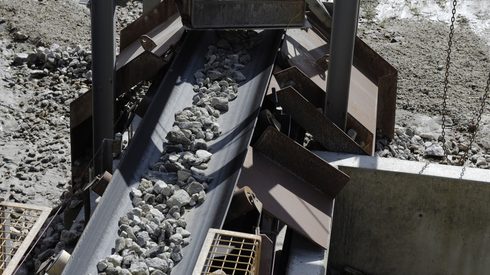On the lower-grade H2 material, reduced supply has been balanced by continued poor demand from Taiwan and Vietnam, sources said.
“I feel that the market is not so strong, but generation is also not so good, so steel mills in Japan cannot decrease their buy prices. Their product sales prices are not bad, so mills are also enjoying [decent] margins,” a Japanese scrap supplier source said.
“Demand for scrap in Japan is reduced in the summer due to maintenance periods, but scrap generation is also lower in summer because Japan has long holidays in August,” a Japanese trading source said.
H2-grade demand in South Korea was also limited, sources said, with bids this week heard at ¥47,000 ($427) per tonne fob. The latest deal heard closed, one week ago, was for 10,000 tonnes of H2 at ¥47,500 per tonne fob. Offers for H2 were heard at ¥48,500-49,000 per tonne fob on Wednesday.
H1:H2 was also heard sold to South Korea at ¥54,000 per tonne cfr over the past week, with freight costs of around ¥4,500 per tonne, up from a previous cost of ¥4,000 per tonne.
H2 bids from steelmakers in the local market were heard at ¥49,000-51,000 per tonne this week, but that was of less help to sellers in the Kanto region, which depend on exports more than other major generation centers.
Fastmarkets’ price assessment for steel scrap H2, export, fob main port Japan, was ¥47,500-48,000 per tonne on July 28, down by ¥500-1,000 per tonne week on week.
Higher grades differ
Strong demand from South Korea for Shindachi material has kept prices for the high-grade scrap well supported, along with interest from blast furnace (BF) mills in both Japan and South Korea.
A second supplier source said that he expected South Korea’s intake of Japanese high-grade scrap to increase as the year progressed, in line with ambitious carbon-emissions targets in the country.
Fastmarkets’ latest price assessment for steel scrap Shindachi, export, fob main port Japan, was ¥64,500-65,000 per tonne on Wednesday, narrowing upward by ¥500 per tonne from ¥64,000-65,000 per tonne fob a week earlier.
Shindachi was heard offered at ¥65,000-66,000 per tonne fob this week, with a bid heard at ¥69,000 per tonne cfr South Korea, equivalent to ¥64,500 per tonne fob.
Local mills were heard to be bidding for Shindachi at ¥60,000-65,000 per tonne this week, and for heavy scrap (HS) at ¥59,000-61,000 per tonne.
The first supplier source said that HS would be workable at ¥65,000-65,500 per tonne cfr South Korea, which would be equivalent to ¥60,500-61,000 per tonne fob Japan.
Trading sources, however, said that South Korea was still able to pay as much as ¥62,000 per tonne fob for HS. Offers to China for HRS101 grade were heard at $600-615 per tonne cfr this week, but with buyers only willing to pay $530-550 per tonne cfr eastern China.
Offers were heard at $570-580 per tonne cfr Vietnam for HS, but no interest was heard among buyers.
The latest deal for the grade was heard at ¥65,500 per tonne cfr South Korea last week, with the freight cost for this heard at ¥3,500-4,000 per tonne.
Fastmarkets’ weekly price assessment for steel scrap, plate and structural, export, fob main port Japan, was ¥60,500-62,000 per tonne on Wednesday, widening downward by ¥500 per tonne from ¥60,000-62,000 per tonne one week before.
Shredded scrap was heard bid at ¥62,500 per tonne cfr South Korea, or ¥58,000 per tonne fob, over the past week, while trading sources said that ¥58,500-59,000 per tonne fob would be necessary to secure material. Shredded was offered to Vietnam at $555 per tonne cfr from Japan.
Fastmarkets’ price assessment for steel scrap, shredded, export, fob main port Japan, was ¥58,500-59,000 per tonne on Wednesday, unchanged week on week.
Decarbonization complicates an already complex marketplace. Our latest analysis, ‘The true price of green steel’, takes a deep dive into the ripple effects that overhauling the markets will have on the steelmaking process and supply base.




